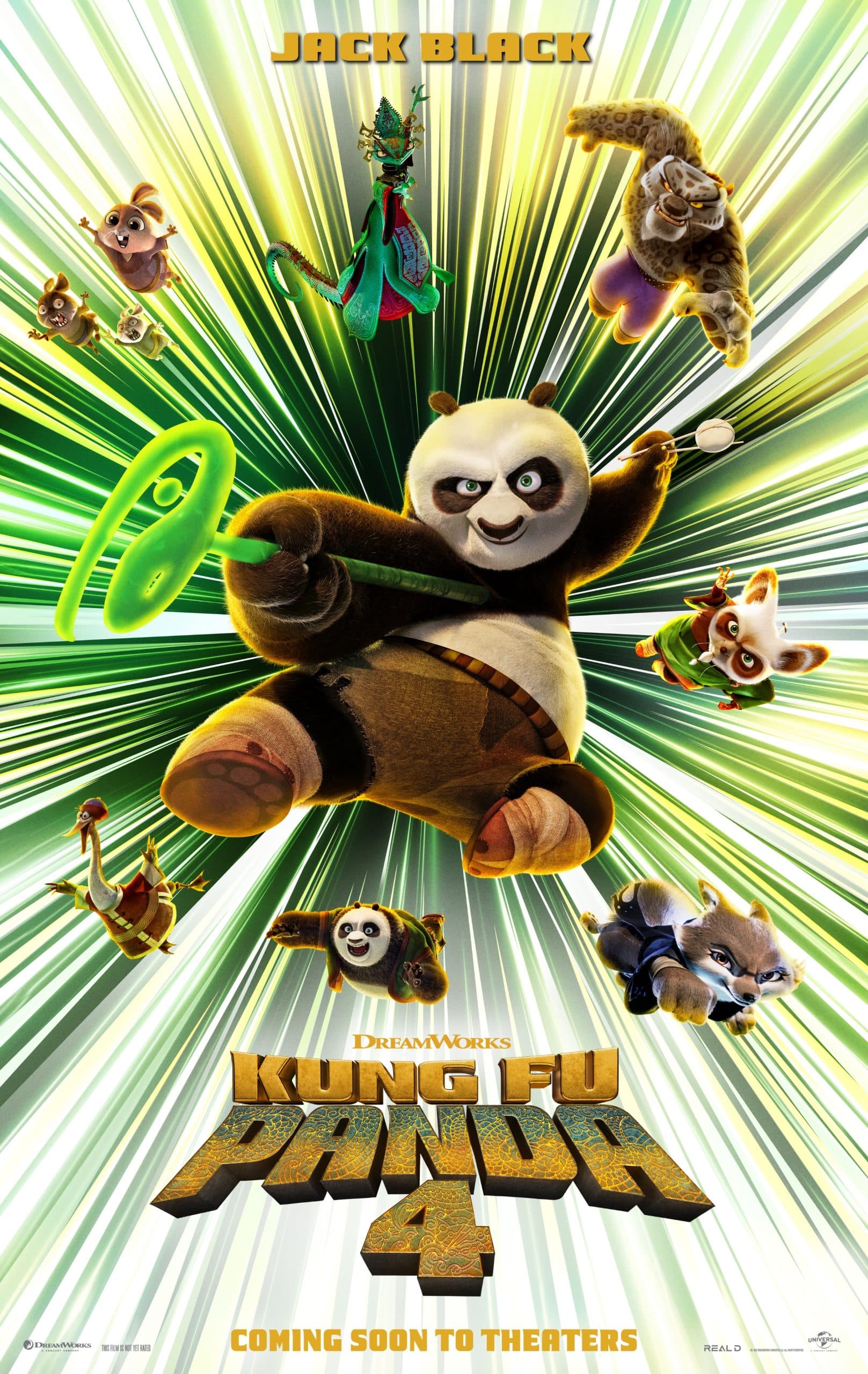
- Starring
- Jack Black, Awkwafina, Viola Davis
- Writers
- Jonathan Aibel, Glenn Berger, Darren Lemke
- Director
- Mike Mitchell
- Rating
- PG (Canada, United States)
- Running Time
- 94 minutes
- Release Date
- March 8th, 2024
Overall Score
Rating Summary
Generally speaking, things look best in threes; three wise men, three blind mice, three little pigs… In the entertainment world, that logic often carries over in the desire for story arcs to be structured as trilogies. And why not? You start an arc, you develop in with new challenges, and finally, you cap it off with a peak that brings with it a hardened sense of closure, both worldly and personal. Even when film series don’t stick the landing, the narrative rationale is there, at least enough to give the overarching story some leeway beyond accusations of cash cow-milking; once you add a fourth chapter to the mix, prospects can get dubious at best, and downright disastrous at worst. The Kung Fu Panda saga offers itself as the latest victim to test that theory, with now its fourth tale. Kung Fu Panda 4 lands itself so far from note in either direction that its greatest achievement is making Po’s previous “last chapter” less disappointing by comparison.
Having achieved the highest level of stature in his capacity as the famed Dragon Warrior, Po (Black) finds himself tested with the need to face his greatest challenge ever: passing the glory off to someone else. It’s time for Po to take his next step as a spiritual leader and crown the new Dragon Warrior, a prospect that feels both necessary and incredibly difficult for the lovable panda as the latest threat to kung fu, the shapeshifting Chameleon (Davis), threatens to awaken demons from his past to wreak havoc the likes of which he’s yet to see. Accompanied by a sly and untrustworthy fox named Zhen (Awkwafina), Po sets out for one final quest to restore balance to the life that brought him purpose all those years ago.
Returning to that sentiment about trilogies, the Kung Fu Panda trilogy may not have been entirely rock-solid in its execution—the two masterpieces that opened the franchise were somewhat soured by a decent but unremarkable finale—but that comprehensive overview of Po’s arc demonstrated a purposeful understanding of how exactly this character would and should be challenged. Specifically, this was embodied in the films’ villains, each of whom posed a challenge for Po representing one tenet of the dualist philosophy; Tai Lung challenged the body, Lord Shen challenged the mind, and Kai challenged the soul (this follows the assumption that dualism actually has three pillars… don’t ask any philosophers to back that up). Now, with Kung Fu Panda 4, cue the Chameleon, a character meant to represent… the self? Maybe? It’s not exactly clear, and even if it were, its half-hearted rehashing of those prior obstacles to reach that new threshold reads less like thematic re-appropriation and more like a desperate gasp at prior success.
That Tai Lung (Ian McShane) is the only prior villain to return in any capacity higher than background decor should be indicative enough of this, but the main villain this time around further exemplifies where Kung Fu Panda 4 fails to express any sense of purpose. Davis, God bless her, holds firm in her unparalleled ability to lend insurmountable gravity to even the most thankless roles, and the Chameleon feels especially thin because she has so little involvement with Po himself. And therein lies the problem; in crafting this film as a sort of epilogue, the filmmaking team fails to justify why Po even matters here. In a way, his desire to insert himself where he isn’t needed is addressed in the film’s final act, but the uneven and hackneyed split between him and Zhen in the lead-up to it (and its final comedown) just leaves the film feeling like an afterthought that somehow made it all the way through the animation process.
By the time it’s all over, Kung Fu Panda 4 draws Po’s story to a close with all the epic heft of a straight-to-VOD, feature-length extension of a serial tv series. In fact, looking over the film as a whole, enough evidence points to this being a very real possibility for its genesis; from its poorly conceived episodic nature, to the severely downgraded animation textures, to the flat and infrequent action scenes, most of what series newcomer Mike Mitchell has to offer in the director’s chair feels less like the finale of a beloved character and more like the finale of his Nickelodeon type program. The last time Mitchell was tasked by DreamWorks with capping off someone else’s franchise with a fourth film, he surprised audiences with the surprisingly decent (and complete) Shrek Forever After; it may have been too much to ask him to hit that narrow target a second time.
still courtesy of Universal Pictures
If you liked this, please read our other reviews here and don’t forget to follow us on Twitter or Instagram or like us on Facebook.
Discover more from
Subscribe to get the latest posts sent to your email.
